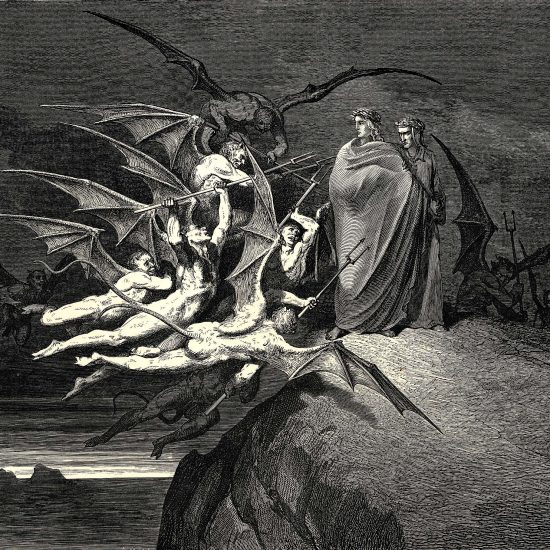Editor’s Note: This article is the third in a seven-part series examining some aspects of the current conflict between the Missouri Baptist Convention and five related institutions.
When trustees of the Missouri Baptist Foundation, Missouri Baptist University, The Baptist Home, Windermere Baptist Conference Center and Word&Way changed their individual charters in 2000 and 2001 to establish self-electing boards, some observers attributed the move to political causes.
Upheaval in the Southern Baptist Convention among political factions — often labeled conservative, fundamental, moderate or liberal — led to what some call “the conservative resurgence” and others tag “the fundamentalist takeover” of the SBC. That fight began to spill over into Missouri Baptist life in the 1990s.
In 1991, a group of ministers formed the Conservative Pastors’ Fellowship. Word&Way reported that the fellowship planned to establish a statewide organization that would “distribute information as well as mobilize attendance at meetings,” including the Missouri Baptist Convention annual meeting.
What some believe began with theological differences (Beyond Rhetoric part 2) began to take on a political flavor.
That year the Cooperative Baptist Fellowship of Missouri, then called Baptist Fellowship of Missouri, also was formed.
An indication that SBC politics had come to the state surfaced at the 1991 annual meeting in Springfield. Gerald Davidson, pastor of First Baptist Church, Arnold, was elected president over Thomas Nelson.
At the meeting, Davidson noted, “Right now, conservatives in Missouri do not feel like they’re being heard as far as the Executive Board is concerned. If our Executive Board were more representative, polarization could decrease and we could vote issues rather than politics.”
For the next few years, the MBC presidency and first vice presidency were not held exclusively by any single group. In 1997, two conservative groups – Southern Baptist Conservatives of Missouri and the Missouri Baptist Laymen’s Association, a self-described research organization founded by Troy businessman Roger Moran — announced in advance the candidates they supported. All were defeated.
Word&Way reported that David McAlpin, pastor of First Baptist Church, Harvester, and Southern Baptist Conservatives of Missouri president, told supporters, “The tide will turn; let’s be patient.”
That year, the executive board chose Jim Hill, then-pastor of South County Baptist Church, St. Louis, as MBC executive director.
Hill brought together representatives of two political “factions” at least three times in 2000 in an attempt to find ways to work with differences. Project 1000 represented what some called fundamental conservatives, and Mainstream Missouri Baptists stood for moderate conservatives. A third “undeclared” group also was represented.
Project 1000
Nineteen ninety-eight proved to be a pivotal year in Missouri Baptist life. Moran spearheaded an effort to get more conservatives elected to state leadership spots.
In an interview with Word&Way in September 2000, Moran said that by 1998, conservatives were considering pulling out of the MBC and starting a separate state convention, such as conservatives in Virginia and Texas had done. Moran convinced a group of pastors to try one more time to redirect the MBC before deciding to pull away.
Moran said he discovered that conservatives would need at least 1,000 messengers to vote along conservative lines at the annual meeting. His plan to get conservatives elected to MBC offices for the next five years was tagged “Project 1000” for the 1,000 messengers.
Mainstream Missouri Baptists also organized in 1998 to oppose Project 1000. Mainstream leaders closed its Jefferson City office on Dec. 31, 2001, and officially disbanded on March 31, 2002.
Messengers to the 1998 and 1999 annual meetings elected Project 1000 candidates each year.
Messengers to the 2000 annual meeting approved a motion by Wade Paris, a messenger from First Baptist Church, Kirksville, requesting that Hill “continue to work with the political leaders of the various groups in the Missouri Baptist Convention to find a God-honoring solution to our political dilemma” and to report in 2001.
Control
By 2000, some leaders acknowledged that control of the convention’s direction, rather than theology, had become the central issue. Davidson noted in a September 2000 interview with Word&Way that the theological dispute over inerrancy had turned to political issues. “There are Mainstream Missouri Baptist people who believe the Bible as strongly as I do,” he said.
Davidson added that if Project 1000 candidates won the 2000 election, which they did, “We’ll [conservatives] pretty much control the state convention.”
Not only can the MBC president set the tone for the year, he also appoints the eight-member Committee on Convention Committees, which nominates members to all standing committees except the nominating committee. The president nominates eight individuals to replace those who complete their three-year term on the nominating committee. Messengers vote on the nominees at the annual meeting.
In a related interview that September, then-MBC president Jay Scribner, pastor of First Baptist Church, Branson, noted, “Is it any more wrong for the conservatives to have the offices than it was in years gone by for the moderates to have the offices? We didn’t invent the system.”
Not only did Project 1000 spearhead the effort to elect conservatives to MBC offices, its members also sought to make policy changes.
In a Sept. 21, 2000, meeting hosted by Hill, Project 1000 listed three proposed criteria for MBC service — to support the Project 1000 view of biblical inerrancy, to support the conservative resurgence in the SBC and not to be part of a church that supports or contributes to CBF. The proposal apparently was never voted on at an annual meeting, but the guidelines influenced Project 1000 choices for nominees to convention posts.
Nominating committee
Although trustees for The Baptist Home already had voted to become self-electing, a move by the MBC nominating committee in 2001 to tighten qualifications for individuals to serve on convention boards and committees seemed to be a catalyst for the other institutions.
The committee, led by chairman Jeff Purvis, pastor of Westport Baptist Church, St. Louis, established new guidelines at its March 30, 2001, meeting.
The committee followed three guidelines in screening nominees to various MBC boards, agencies and committees. First, individuals could not serve on more than one board, institution, commission or the Executive Board at the same time. Second, each church could have a maximum of two members on boards or committees at any one time.
The third guideline required that individuals serving on MBC boards, institutions, commissions and the Executive Board “must be supportive of both the MBC and the SBC, unless otherwise provided by the charter or constitution of the said entity.”
Purvis told messengers to the 2001 annual meeting that God had “put on his heart the guidelines to use.” He added that subcommittee chairmen, MBC officers and two parliamentarians he had consulted agreed that the guidelines did not violate the convention’s constitution or bylaws.
Purvis said the changes were made in an attempt to “shut down” the “good-old-boy network” and to “broaden the tent of participation” in the convention.
2001 resolution
Newcomers to the state, particularly to mid-Missouri, soon notice that the flood of 1993 has become a watershed event that often is used as a benchmark for time. The 2001 annual meeting could be labeled Missouri Baptists’ watershed event, the strongest signal of the possibility that Baptist troubles would be aired in secular courts.
Messengers to the 2001 annual meeting adopted a resolution that accused the five institutions of conduct “inconsistent with the spirit of cooperative missions” and of making “a serious betrayal of trust.” The resolution called on the five “to rescind their actions and to take any necessary steps of reconciliation to rebuild broken trust.”
Trustees and heads of four of the five institutions have said legal issues, more than political or control concerns, led them to change their charters to become self-electing boards. But what role did concerns about the convention’s political climate play in their decisions?
Word&Way
The primary issue for Word&Way was and still is control, news journal editor Bill Webb said in an interview earlier this year. “That was the driving issue — a concern that others, that a small group was making an effort to control Word&Way — the agency and the newspaper,” he said.
“That was important to our trustees because the two things they felt they needed to protect and that were in danger after hearing about the [2001] nominating committee report were the future ability of the newspaper to be a free voice for Baptists in Missouri and to be in a position to serve what they referred to as all Missouri Baptists.”
Webb said he believed trustees wanted to protect the news journal’s freedom to cover all Missouri Baptist groups. “I think they [trustees] became concerned at the word ‘control’ being used to describe the primary role of trustees. They were observing the way some things were playing out in Missouri Baptist life…the use of propaganda and innuendo in an effort to convince Missouri Baptists that one side’s opinion was valid and that maybe the others were not,” he said.
“They were concerned about the possible manipulation of Word&Way in a way that would not have been consistent with its heritage.”
In a statement issued after trustees voted for the change in October 2001, then-Word&Way board chairman Bob Johnston, pastor of First Baptist Church, Rolla, noted, “[T]rustees came to believe that the mission of providing a free press for all Missouri Baptists was in jeopardy.”
Word&Way had existed as an agency for just a few months prior to the nominating committee’s first meeting. The newspaper had been overseen by an Executive Board committee until messengers to the 2000 annual meeting approved the charter that created the separate agency on Jan. 1, 2001.
Webb recommended that the four eligible trustees scheduled to rotate off the board in 2001 after serving only one year be reelected to full three-year terms. Instead, the MBC nominating committee recommended four different individuals to fill those spots. “At least one [MBC] nominee had been extremely critical of Word&Way and its leadership,” Webb said.
“The biggest issue was denying the four trustees…. That sent a signal to the board that people would be treated unfairly…and that a power play was in process,” he added.
The Baptist Home
While The Baptist Home president Larry Johnson and trustees insist that liability issues are the primary reason the board changed its charter, concerns about convention conflict led The Home’s trustees to form a study committee a year earlier.
Paris, a trustee for The Home at the time, said the study committee was formed because of concerns about the effect convention conflict might have on admission policies. Attorneys who examined the bylaws said the admissions concern could have been dealt with without a charter change. However, lawyers noted The Home had a “much larger issue” in liability that needed to be dealt with “immediately.”
Early in 2001, Johnson issued a “background document.” In it, Johnson noted that The Baptist Home is unique because only members of MBC churches can be residents. “That makes The Home more directly impacted by issues that have the potential of dividing the churches of the Missouri Baptist Convention,” he wrote.
Apparently several groups had expressed concern that some individuals could be excluded from residency at any of The Home’s three campuses based on their church membership and whether the congregation was considered an MBC church.
MBU
In a letter dated April 15, 2001, to all MBC agency heads, MBU president Alton Lacey noted two reasons for the institution’s charter change — first, concern over liability issues and second, a desire to serve all Missouri Baptists and to be “sound academically, fully accredited and aware of the need to place Christian emphasis at the center of educational life.”
In a question-and-answer section included in the letter, Lacey cited “recent changes” among Missouri Baptists. “[It was] desirable to remove the college from the struggles and unrest that currently exist in the convention,” he wrote.
He noted that convention changes would make recruiting trustees more difficult and that the nominating committee guidelines could create accreditation problems for the university.
When recently asked why MBU trustees decided to change the charter, Lacey responded, “The real question is why did the convention nominating committee illegally changed its guidelines and procedures without any input from the university or any consideration of how the changed guidelines would affect the ability of the university to attract qualified trustees.
“The board of trustees of MBU acted when it did and in the manner it did to [e]nsure that the university could continue to serve all Missouri Baptists apart from the political struggles that were well documented within the convention and were sure to dominate the annual meeting,” he said.
Windermere
Windermere president Frank Shock also cited liability issues as center trustees’ primary concern, but acknowledged that the nominating committee changes affected the decision to become a self-electing board.
“All relationships need to be mutually beneficial,” he said in an interview earlier this year. “For years we had a mutually beneficial relationship [with the convention]. Our trustee board and CEO (chief executive officer) made recommendations [to the nominating committee]. Those were agreed upon and nominated…. To have a solution, you’ve got to have people willing to compromise.”
Foundation
When Foundation trustees voted on Oct. 10, 2001, to change the institution’s charter, they called the move a “business decision based on fiduciary obligations and duties to foundation clients” as the reason. The nominating committee actions and the “convention’s political atmosphere” also were seen as “at least a perceived threat,” according to the Oct. 18, 2001, issue of Word&Way.
In an interview earlier this year, Foundation president Jim Smith said the institution’s trustees and staff hold themselves responsible for fiscal decisions and accountability.
He also pointed out that clients, not the Foundation or the convention, control the funds the Foundation handles. “This money is not discretionary. Trustees are not in control of the money that is managed.”
Accountability
Convention leaders continue to insist that as long as the MBC does not maintain control of the five institutions, those entities have insulated themselves from accountability to Missouri Baptists. In the fourth part of this series, Word&Way will examine accountability issues.
Additional links to the entire series:
Beyond Rhetoric, Part 1: Overview
Beyond Rhetoric, Part 2: Theology
Beyond Rhetoric, Part 3: Politics
Beyond Rhetoric, Part 4: Accountability
Beyond Rhetoric, Part 5: Assets
Beyond Rhetoric, Part 6: Insurance
Beyond Rhetoric, Part 7: Reconciliation






